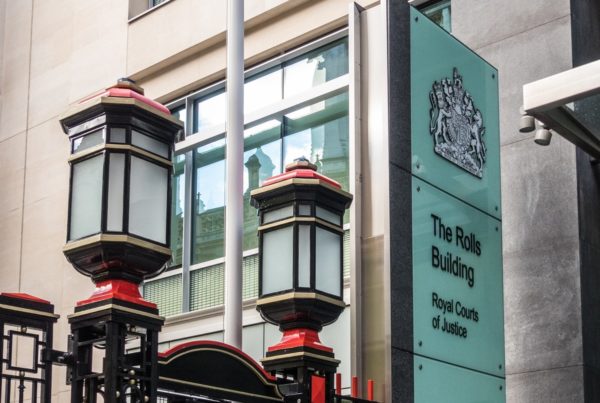In certain circumstances interim payments can be obtained during the substantive action. CPR 44.2(1) and (2) are drawn widely enough to allow the court to make an interim payment on account of costs during the proceedings.
Upon partial discontinuance
In the recent case of R.G. Carter Projects Limited v CUA Property Limited [2020] EWHC 3417 (TCC) the claimant issued proceedings in a claim for damages of £14,225,768 for alleged misrepresentations. The claimant subsequently sought permission to amend its case to abandon the misrepresentation claim, abandon one head of claim on which an extension of time was previously sought, and reduce its claim on the final account, which overall reduced the value of the claim to £1,852,338.57.
The claimant accepted that it should pay the costs of and occasioned by the amendments; however, the judge considered that there would be difficulties in assessing the costs at this stage. The judge refused to order an immediate detailed assessment of costs and instead decided that the claimant should pay £100,000 on account of the defendant’s incurred costs of £370,000.
The judge rejected that the court’s power to order a party to pay a reasonable sum on account of costs is designed for use simply in respect of the costs of a discrete application or after trial. He held that there is no such limitation in the terms of CPR 44.2(8), and there is no good reason why the court should depart from the usual rule in respect of costs ordered upon partial discontinuance.
Where liability has been resolved and it may be a long time until quantum is resolved In RXK v Hampshire Hospitals NHS Foundation Trust [2019] EWHC 2751 (QB) Master Cook considered an application for an interim payment on account of costs in a clinical negligence case where liability had been resolved and it may have been many years until quantum is resolved.
Master Cook endorsed the approach adopted by HHJ Robinson in X v Hull & East Yorkshire Hospitals NHS Trust [2019] 2 WLUK 723 (25 February 2019), namely that CPR 44.2(1) and (2) were wide enough to allow the court to make an order of this nature. However, he found that the application that should be made in these circumstances is for a costs order down to a specific date and an interim payment on account of those costs. Such orders can be described as a ‘prospective’ or ‘anticipatory’ costs orders as they are made before the conclusion of the proceedings.
What should an application for an interim payment during the proceedings contain? The guidance provided in RXK was that an application should contain information that will enable the court to have regard to the circumstances at CPR 44.2(4) and (5), namely:
(a) the conduct of all the parties;
(b) whether a party has succeeded on part of its case, even if that party has not been wholly successful; and
(c) any admissible offer to settle made by a party which is drawn to the court’s attention, and which is not an offer to which costs consequences under Part 36 apply.
The conduct of the parties includes –
(a) conduct before, as well as during, the proceedings and in particular the extent to which the parties followed the Practice Direction – Pre-Action Conduct or any relevant pre-action protocol;
(b) whether it was reasonable for a party to raise, pursue or contest a particular allegation or issue;
(c) the manner in which a party has pursued or defended its case or a particular allegation or issue; and
(d) whether a claimant who has succeeded in the claim, in whole or in part, exaggerated its claim.
Another relevant consideration was preserving security for the defendant and to ensure that there was a limited risk of such costs having to be repaid and, therefore, other issues that the application could address include:
– The type of funding agreement and details of any payments made under that agreement;
– Whether any Part 36 or other admissible offer has been made, and if so, full details of the offer;
– Details of any payments on account of damages made to date;
– A realistic valuation of the likely damages to be awarded at trial;
– A realistic estimate of the quantum costs incurred to the date of the application;
– Any other factor relevant to the final incidence of costs, such as the possibility of an issues-based costs order or relevant conduct; and
– The likely date of trial or trial window.
In RXK the solicitor’s witness statement failed to adequately address any of these issues and so no substantive decision was given; however, the judgment provides useful guidance on how an application should be made in these specific circumstances to ensure adequate cash flow.
Speak to our costs experts
If you’re looking to obtain interim payments, Athene Legal’s experienced costs lawyers can assist with your case. Contact us today on 020 7459 4843 or email info@athenelegal.co.uk.






